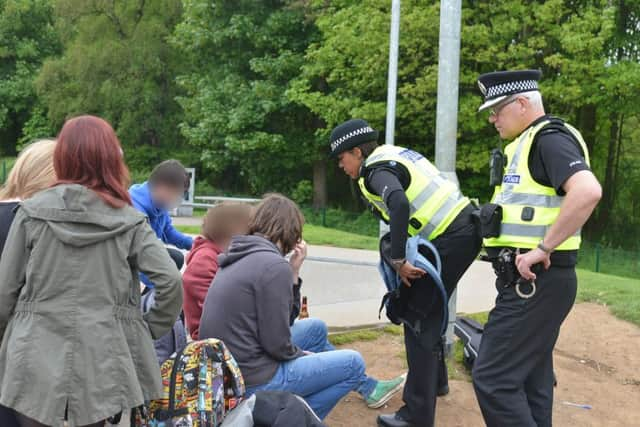Police criticised for stop and search target focus


The Association of Scottish Police Superintendents (ASPS) said Police Scotland had an “erroneous” focus on numerical targets, which had become “paramount” - above the force’s stated aim of “keeping people safe”.
The criticism came in a submission to the advisory group on stop and search, which was set up by the Scottish Government and is expected to make its recommendations by the end of the month.
Advertisement
Hide AdAdvertisement
Hide AdThe ASPS, a staff association for senior officers, said Scottish police forces had imported a targets culture similar to that used by the Metropolitan Police, where Police Scotland’s chief constable, Sir Stephen House, was once a Deputy Assistant Commissioner. The submission said: “It should be recognised that Sir Stephen is an officer who had learnt his policing style in England and Wales and had latterly been a leader in the Metropolitan Police Service.
“As such, he introduced a rigorous ‘metropolitan’ performance management style to Scotland, which included a strong focus on the police use of search as a means of tackling violent crime.”
The ASPS notes that violent crime fell in Strathclyde following Sir Stephen’s increased use of stop and search, but said the continued use of the tactic under Police Scotland meant officers had to include searches for alcohol and drugs as well as weapons to keep up the number of “positive” searches.
“In the opinion of our Association, the challenge to achieve the target became paramount rather than the expressed desire of ‘keeping people safe’,” the submission said.
“In order to achieve the target, increased numbers of individuals were asked to ‘consent’ to search and the number of searches recorded grew dramatically. Until that time ‘consensual search’ was not a term that was widely recognised in Scotland.”
The ASPS submission said Police Scotland had “erroneously” focused on the number of searches and their success instead of more sophisticated measures of performance.
ASPS President Niven Rennie said: “Once you set a numerical target and you hold people to account for that, you get abnormal behaviour by people trying to reach the target and get management off their back.
“I’m not saying Steve House is personally responsible for that, but it is an English-style of management which was alien to Scotland up until round about 2010. All of a sudden we got it and the abnormal behaviour followed.”
Advertisement
Hide AdAdvertisement
Hide AdMr Rennie said he expected consensual stop and search to be abandoned altogether following the publication of the advisory group’s findings. He added: “The whole backlash to it, the way it’s been publicised – it’s damaged goods. I think it’s going to go and everything will be covered by legislation.”
Assistant Chief Constable Wayne Mawson said: “Since Police Scotland came into being no targets have been set for stop and searches. Considerable work has been undertaken to communicate to officers across Scotland about their use of stop and search as a tool to address community priorities.
“We remain committed to driving ongoing improvements around stop and search through continuing to work with others. In addition, we will ensure that any recommendations from the independent Stop and Search Advisory Group are considered, and acted upon.”